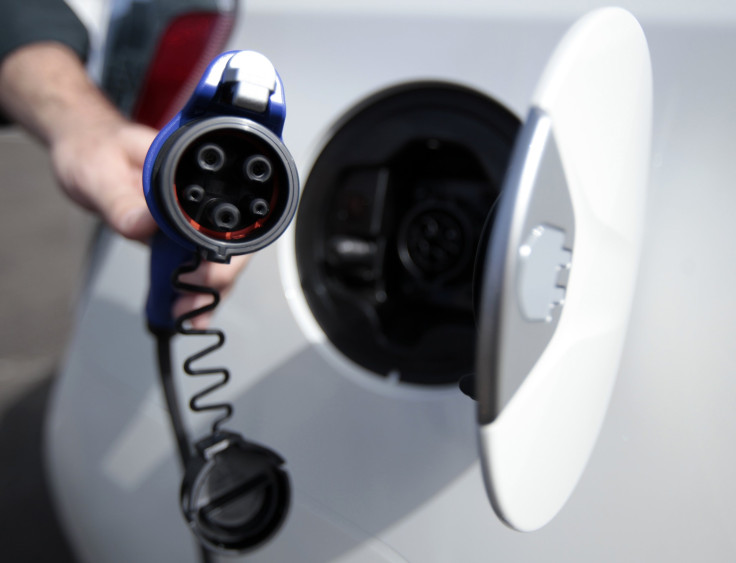Here Are The 6 Bills California Gov. Jerry Brown Just Signed To Promote Electric Vehicle Use In The State That Leads The Nation In Promoting Green Cars And Trucks

Electric vehicle devotees gathered at nearly 100 events across the U.S. this past weekend as part of National Plug-In Day, sponsored by the Sierra Club and other EV, or electric vehicle, advocates, but in California the event took on a public policy air as Gov . Jerry Brown signed into law six bills aimed at promoting clean vehicle use.
California has become the nation’s leader in green machines -- there are more electric vehicles per capita there than anywhere else in the country. California has made it a priority to get 1.5 million electric cars on its roads by 2025.
“Today, we reaffirm our commitment in California to an electric vehicle future,” the governor said at a signing ceremony in Sacramento on Saturday.
Here are the six bills:
Assembly Bill 8 provides $2 billion in funding for green initiatives, including a cash-for-clunkers-style program that makes it easier for owners of used cars to take advantage of California’s Enhanced Fleet Modernization Program and funding to build 100 hydrogen fuelling stations for fuel-cell vehicles.
Senate Bill 359 funds programs to encourage the purchase of clean vehicles, including hybrid and zero-emission trucks and buses.
Two bills (Assembly Bill 266 and Senate Bill 286) extend to 2019 access to the state’s High Occupancy Vehicle (HOV) lane for solo drivers of low or no-emission vehicles; the exemption was set to expire in 2015. AB 266 gives the privilege to all-electric vehicles while 286 extends the benefit to drivers of hybrid plug-ins.
Senate Bill 454 creates an open system for electric car charging payments that will make it possible for drivers of plug-in cars to use any public charging station regardless of system provider. Providers of charging stations will not be allowed to deny this service to plug-in car owners who are not subscribed to their network. The goal is to avoid EV charging station providers from requiring customers to subscribe to a specific service and to make it easier for drivers to find charging stations and charge their vehicles with their credit or debit cards the same way drivers of gas-powered cars can fill up at any gasoline station.
Assembly Bill 1092 requires state agencies to establish standards for the construction of charging outlets in multi-family residences like apartment complexes and commercial developments, such as charging outlets in grocery store parking lots.
© Copyright IBTimes 2024. All rights reserved.




















